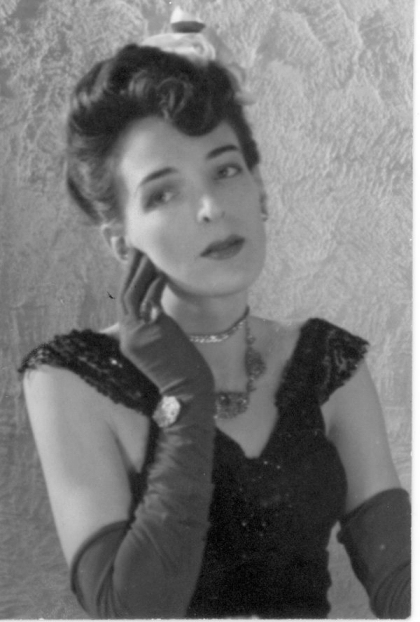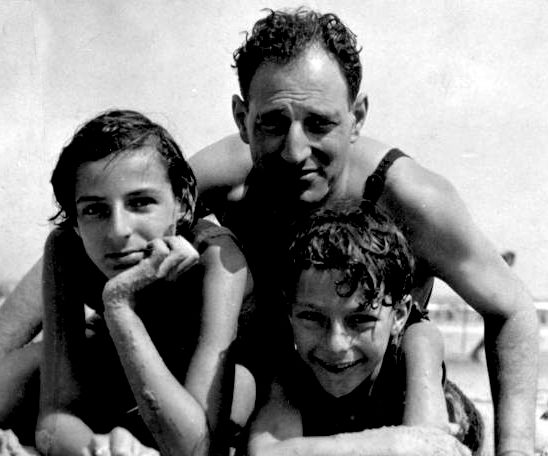Childhood and Adolescence
Lee Garb was born Lila Doris Leopold on May 28, 1920 to Samuel Leopold and Fanny Berger. She grew up in west Trenton, NJ in a house on Riverside Avenue, so named for its adjacency to the Delaware River. She had one sibling, her brother Joseph, five years younger. Her father was a prosperous CPA and the family weathered the depression without much financial difficulty. Her mother was a housewife, as was typical in that era.
The Leopold children were both physically beautiful. Both kids had jet black hair and deep blue eyes. Joe was slim and muscular and bore a resemblance to Frank Sinatra. As a teenager and in later years, Lee had the face and figure of a fashion model. She retained her stunning beauty throughout her life.
Both of her parents had been raised in orthodox Jewish homes. As an adult, Samuel became a Reform Jew. Fanny was not particularly observant, but retained her cultural Jewishness. Both spoke Yiddish when the need for obscurity in front of the kids arose. Before Lee's birth, Fanny became seriously ill with respiratory failure. Medical care seemed to be failing to save her when her sister Helen came to visit from New York. Helen had converted years before to Christian Science and brought with her the intention to help heal Fanny with prayer (or "knowing the truth" as Christian Science characterizes the process). Fanny recovered from her illness and attributing the recovery to the healing power of prayer, converted also. This was to have a significant impact on the family, both then and for the next generation as well.
When Lee was a child, she lived in a religiously divided house. Her father went to Temple on Saturday morning and then accompanied his wife and daughter to church on Sunday. Apparently, Fanny won the tug of war with respect to Lee's spiritual milieu. Things were a bit different when brother Joe came on the scene. Joe had a bris, but while a child, he went to the church. As adolescence approached, Sam wasn't going to let his son be subsumed entirely into Christianity, so off Joe went to Hebrew School in the afternoon to prepare for his bar mitzvah and on Saturday to services at the Temple. But Sundays, it was still the trek to Sunday school at the First Church of Christ, Scientist on State Street. By this time, Lee was a teenager and had disengaged from religious observance except for various holidays... Christmas, Passover, Easter, and Hanukah.
Lee was the family star and enjoyed five years of being the pampered only child until her brother Joe was born. One day, she came home from first grade and found all her stuffed animals moved to Joe's nursery. She had reoccurring nightmares of coming home to an empty house with no one there. Both children were told repeatedly that they would not "amount to anything" without their father's help and assistance. This created a paternal dependency and a defeatist mentality that Lee carried with her throughout her adulthood. Lee suffered from depression, feelings of worthlessness and the sense that she did not deserve the good things in life.
Lee and Joe were popular kids and got along fairly harmoniously with each other. Lee was very artistic as well as a talented pianist (the living room of the semidetached house was dominated by a huge Steinway concert grand piano). She dated Ernie Kovacs for a short time; Kovacs was a fellow student at Trenton Central High, disc jockey on WTTM Trenton and a year older than Lee. After high school, she decided to study fashion design in New York. This decision was partly influenced by her strong desire to escape from the stress and depression she was experiencing while living at home. She moved to the Knickerbocker Hotel and enrolled in the Traphagen School. She occasionally returned to Trenton to visit. During one of these times, she connected with Robert Garb, a man she had met through mutual friends.


